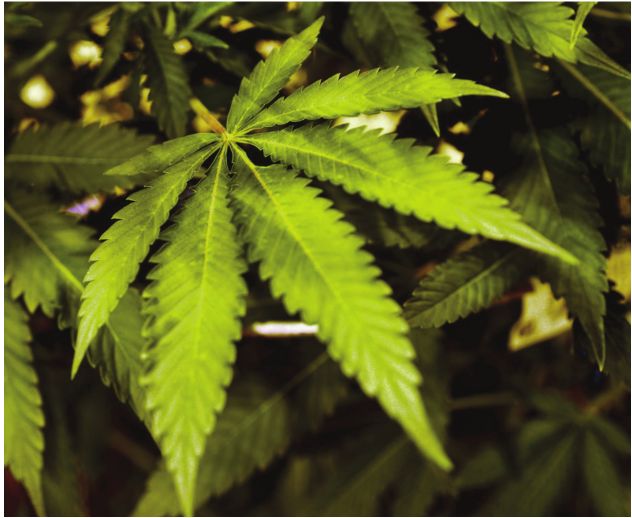
Medical marijuana wins big
Backers of medical marijuana are hoping for a big boost since lawmakers and Gov. Bruce Rauner have agreed to extend and expand the state’s fledgling medical marijuana program, which has suffered from a lack of patients and a ticking clock.
The pilot program, set to expire on Jan.
1, 2018, was extended to July 1, 2020, according to an announcement last week by Rep. Lou Lang, D-Skokie, who says that Rauner has agreed to a deal. Perhaps more critically, the bill sent to the governor in the waning days of the legislative session would ease restrictions that supporters of medical marijuana blame for a slower-than-expected start to the program since sales began last fall.
The state so far has issued about 6,200 cards, giving cardholders the right to legally purchase pot. That’s far short of the number of patients the industry needs to survive.
Getting a card is neither cheap nor easy.
An applicant must pay a $100 annual fee, go through a criminal background check, get fingerprinted and find a doctor who will recommend marijuana for one of the conditions that the state deems treatable with pot. Some doctors have balked at recommending marijuana, and the state was facing the prospect of cardholders having to go through the application process again to renew cards.
The bill awaiting Rauner’s signature would remove the requirement that a doctor recommend marijuana. Instead, physicians would only have to certify that patients have an ailment that’s on the list of conditions that the state says can be legally treated with pot. And the list of conditions would expand to include post-traumatic stress disorder and terminal illnesses that give a life expectancy of six months or less. A card would be good for three years instead of one, and cardholders would not have to be fingerprinted to have cards renewed.
“Taking that certification language out and redoing it is probably a key to increasing the number of patients in the program,” said Chris Stone, chief executive officer of HCI Alternatives, which opened a dispensary in downtown Springfield early this year. “Within six to 12 months, I think you could see a doubling, even a tripling, of the patients getting approved every month.”
The bill comes as the marijuana industry is showing signs of growth. More than 4,300 people in Illinois spent more than $2.2 million on marijuana in April, a $300,000 increase over March sales. The average customer spent $510, which works out to less than 1 ½ ounce at the average sale price, far less than the five ounces that is the legal monthly limit. The state collected more than $102,500 from a 7-percent tax on wholesale transactions in April, which accounted for 30 percent of wholesale marijuana sales this year. Cultivation centers have recorded nearly $6.5 million in sales since the first transaction last fall.
The bill also allows anyone to directly petition the Illinois Department of Public Health to expand the list of conditions that can be legally treated with pot. Recommendations to expand the list made by the state’s Medical Cannabis Advisory Board have been rejected by the health department, leading some industry backers to question Rauner’s commitment to medical marijuana.
“I think that’s the intent, you can go directly to the department to petition for a new ailment or ailments,” Stone said. “It’s definitely about streamlining. You don’t need another layer of bureaucracy to get something like that done.”
Dan Linn, executive director of the Illinois chapter of the National Organization for the Reform of Marijuana Laws, said that the deal to extend and expand the program “wasn’t necessarily expected.”
“We are happy that the governor has now seen that this program is helping people,” Linn said.
There has been talk of cultivation centers and dispensaries being sold as predictions of a boom in legal pot have failed to materialize, Linn and Stone acknowledged.
“Two, possibly three, licenses are like that,” Linn said. “Those cultivation centers that are actively looking for buyers, their price tag likely went up over the weekend (since the legislative deal was announced).”
Stone says it’s too soon to say what a cultivation center or dispensary is worth.
“I don’t think you can put a value on it yet, not until you can see whether this will make some substantial change or not,” Stone said. “They (business owners) definitely have a high opinion of what their valuation should be. I don’t know if they’re bargains or not. It depends on who you talk to.”
Linn said that he and other backers of the bill figured there would be between 10,000 and 20,000 cardholders at the end of the pilot program. The state’s predictions of as many as 100,000 cardholders weren’t realistic, he said, but that’s the figure that stuck with many investors.
“They thought they were promised this big market, and this big market never materialized,” said Linn, who predicts that the state will have more than 20,000 cardholders thanks to the legislation agreed to by lawmakers and the governor. “I think that 20,000 number is right at the cusp of what it will take for the industry to be lasting in Illinois – the 20,000 number is one that I really hear as being do-or-die in this business.”
Contact Bruce Rushton at [email protected].